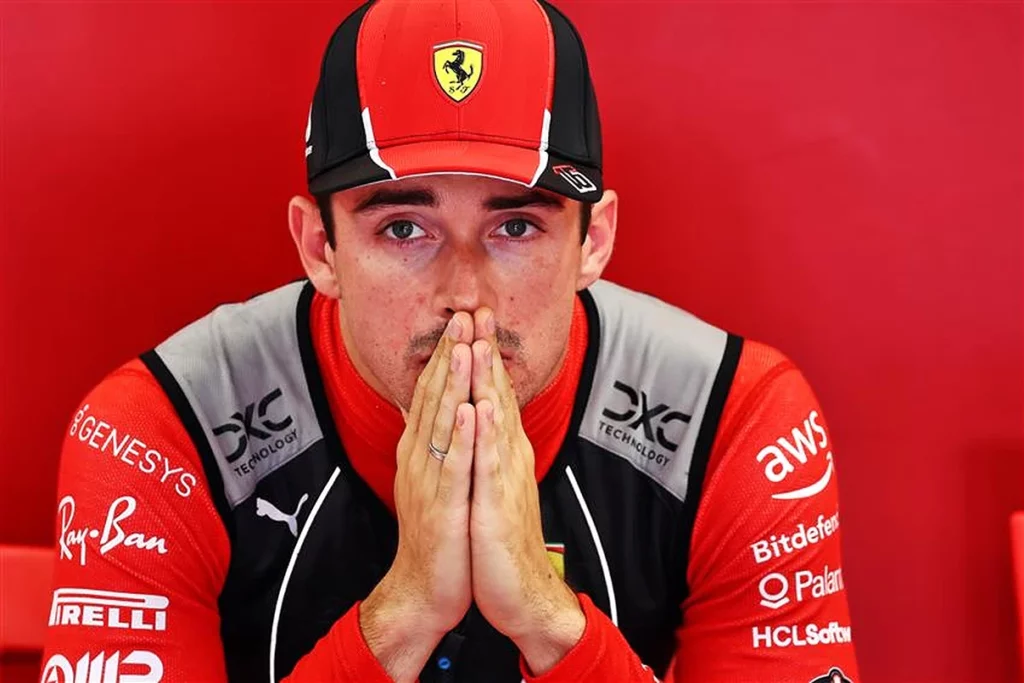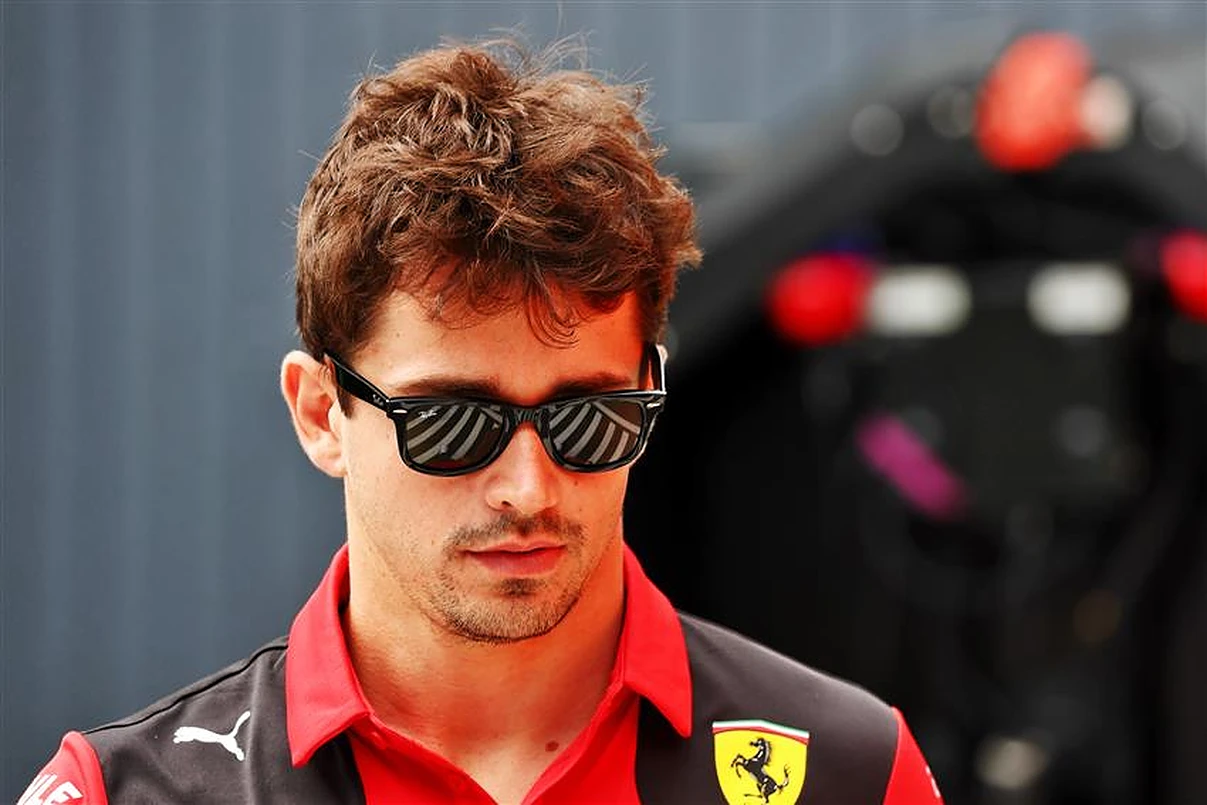Charles Leclerc expressed discontent with Ferrari’s strategic decision during qualifying, feeling it hindered his chance for pole position in today’s race.
Despite starting from the second grid slot, Leclerc believed he could have clinched pole, having clocked faster lap times than the eventual pole-sitter Max Verstappen earlier in the session.
However, he felt thrown off by having to use worn tires at the beginning of Q3.
Ferrari’s decision stemmed from Leclerc using a set of tires for a single lap in Q1, prompting concerns about potential elimination if other drivers improved their times in the final runs.

READ: Mercedes downplays radical Mercedes change
Yet, this precaution proved unnecessary, as Leclerc was called back in after just one lap.
Dissatisfied, Leclerc expressed his unhappiness with the situation, intending to discuss it with the team.
The early use of worn tires in Q3 posed challenges for Leclerc in gauging grip levels, affecting his performance.
He noted the difficulty in adapting to changing track conditions with a scrubbed set of tires, which disrupted his rhythm for the crucial final run.
During Q1, Leclerc’s initial lap time left Ferrari uncertain about his progression to Q2, despite his teammate Carlos Sainz Jr. securing a faster time.
As other teams’ drivers aimed for improvement, Leclerc sought clarification from his race engineer regarding his position, receiving ambiguous responses.
Despite Leclerc’s disagreement, Ferrari chose to send him out again, aiming to capitalize on track conditions.
READ: Martin Brundle warns Red Bull about sacking Christian Horner
However, as it became evident that Leclerc’s position was secure, the team instructed him to abort the run and return to the pits.
Ferrari’s cautious approach contrasted with their pre-race stance on daring decisions for performance gains.
Leclerc’s dissatisfaction with the outcome reflected a missed opportunity resulting from a conservative strategy, highlighting the tensions between risk-taking and strategic conservatism in Formula One.

